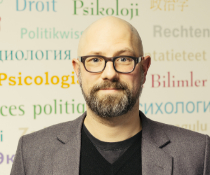Regular Ph.D. Fellow, Cohort 2015
Dissertation topic
The Rise of the Adult Worker Model - In-Work Poverty and Economic Vulnerability in Times of Institutional Change
Dissertation abstract
The working poor present a paradox in modern welfare states, where the fight against poverty and social exclusion is based on activation, i.e., labour market deregulation, labour recommodification and social investment, that promotes well-being through employment. Rising in-work poverty rates indicate that employment alone is insufficient to include those on the margins of society. What role did distributions of the labour market, households and the welfare state play in the rise in in-work poverty, how have they changed in the context of activation, and how have different labour market positions been affected? Is individual labour market poverty polarised, i.e., clustered within certain households, what explains polarisation, and how has it developed in the context of activation? How have the chances to realise family incomes of various occupational classes changed in the context of activation and technological change, and what roles did gender, non-standard employment and work intensity play? Taking the case of Germany and using data of the German Socio-economic Panel Study (SOEP), my dissertation project analyses the connection between income poverty, employment and occupational class over the last three decades - a period that was marked by extensive transformations of the social institutions labour market, family, and welfare state.
Current Job
University of Bremen
SOCIUM
Coordinator of the "Zusammenhaltspanel" at the FGZ-Datenzentrum

